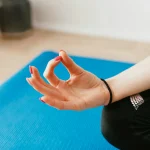The vast majority of the world is in lockdown to prevent the spread of COVID-19. The community quarantine guidelines has resulted in limited movement, including the places to visit. However, the mandatory stay-at-home situation comes with a few exceptions, like grocery shopping.
Grocery shopping is part of the few essential activities during this pandemic. Yet some say that since this is the only “going-out activity,” it might become the breeding ground for the virus to spread. Whether it’s a COVID-19 myth or fact, it’s best to stay safe and be cautious.
The Novel Coronavirus can’t spread in fresh or canned food, but shopping for it may expose you to unknown threats and viruses. You might be thinking:
- Is it safe to do grocery shopping?
- How do I keep myself safe while at the grocery?
- What should I bring with me to the grocery store?
- Is there anything I need to be cautious about?
- What should I do once I brought your haul home?
These and more questions may be buzzing in your mind. Here’s your guide to grocery shopping during the Novel Coronavirus pandemic:
What to do before going grocery shopping
1. Schedule your grocery shopping beforehand.
 Photo courtesy of Energepic.com via Pexels
Photo courtesy of Energepic.com via Pexels
In a lockdown, you need to be strategic about when you should go to the grocery. Limit yourself to go at least once a week or every two weeks.
If you’re scheduled to go grocery shopping, go at a time that’s less busy or crowded. You can take a quick visit and see if there are people in line: the fewer people there, the fewer chances of you contracting the Novel Coronavirus at the store.
2. Create a 2-week grocery list
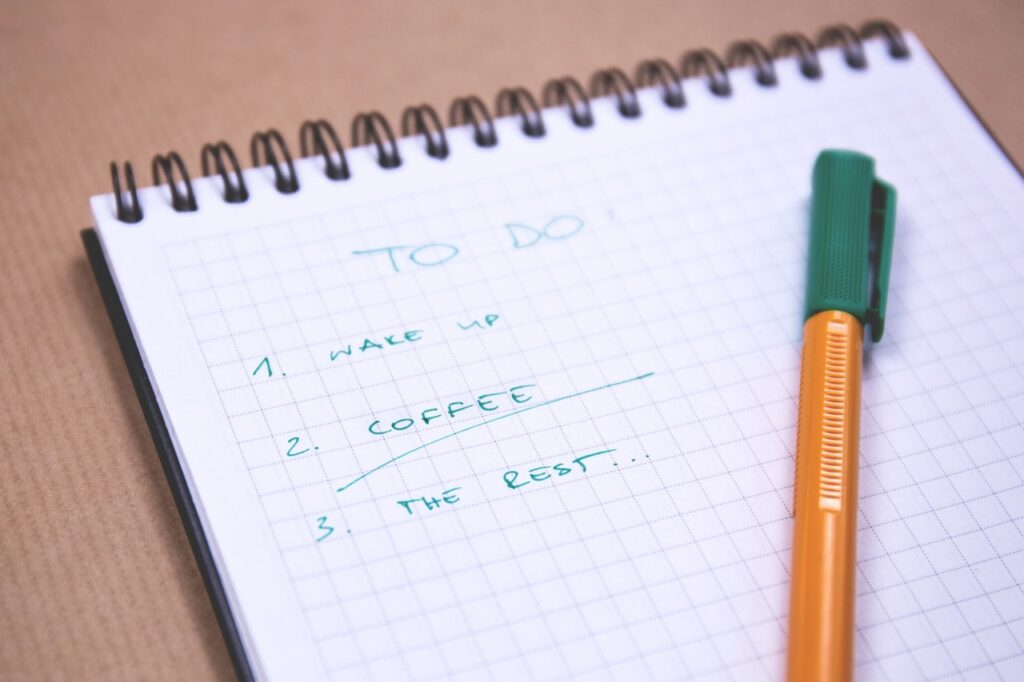 Photo courtesy of freestocks.org via Pexels
Photo courtesy of freestocks.org via Pexels
Since going out is limited, you have to make sure you get everything you need. Don’t think short-term. Instead, think of what you need in the next weeks to make the most out of your trip.
Take note, the Department of Trade and Industry (DTI) released a memo limiting the number of essential goods you can buy. This is to prevent panic buying, overbuying, and temporary supply shortages. For example, you can only check out five pieces of canned goods at the cashier. Make sure to check out the DTI memo before you head out and overbuy.
Pro Tip: Explore your food options. If you’re used to buying only canned goods and instant noodles, why not try some healthy recipes? Since you have more time in your hands at home, explore your kitchen and whip up some food or snacks, you only used to dream of trying before the lockdown.
3. Wear a face mask at all times
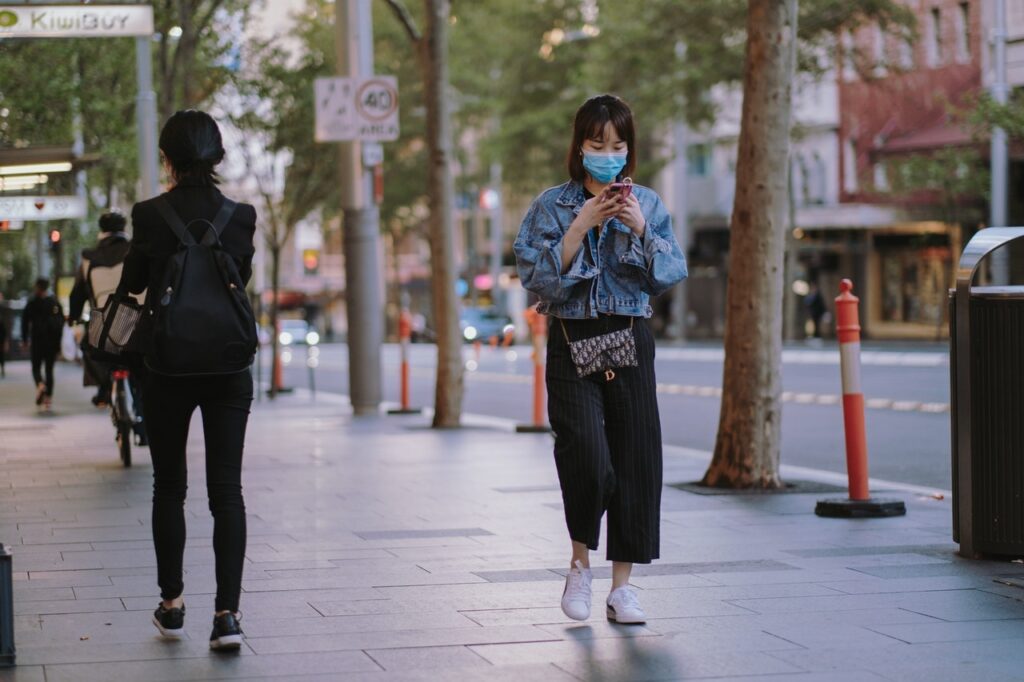 Photo courtesy of Kate Trifo via Pexels
Photo courtesy of Kate Trifo via Pexels
Since the Novel Coronavirus is a respiratory illness, wearing a face mask protects other people from you and vice-versa. Studies and evidence have shown that the Novel Coronavirus can spread without symptoms.
Wearing a mask can cut down that risk. It’s also a visual reminder to keep your hands off of your face. Likewise, if you have a cold or other people do, you can keep yourself safe from droplets that can carry the virus.
4. Prepare your grocery shopping essentials
Don’t go out empty-handed. Be ready with the following items before you head out to buy supplies:
- Grocery list – You need this to keep track of everything you need to buy at the store.
- Face mask – Most cities in the metro and in most parts of the world require everyone to wear a mask before stepping out of the house. Make sure you’re wearing one or have an extra one in your bag, just in case.
- A small bottle of 70% isopropyl alcohol – Although washing your hands is the best way to get rid of germs and viruses, rubbing alcohol can be a good temporary substitute to keep your hands clean.
- Alcohol or wet wipes – Using the cart or the basket from the grocery? Hundreds of people have touched their handles; make sure to wipe them down, first, before proceeding to shop.
- Reusable bags – If you use reusable shopping bags, make sure they are cleaned or washed before each use.
Once you have all of these prepared and ready, it’s time for you to head out and buy supplies.
Safety precautions you need to observe while shopping
5. Observe proper social distancing.
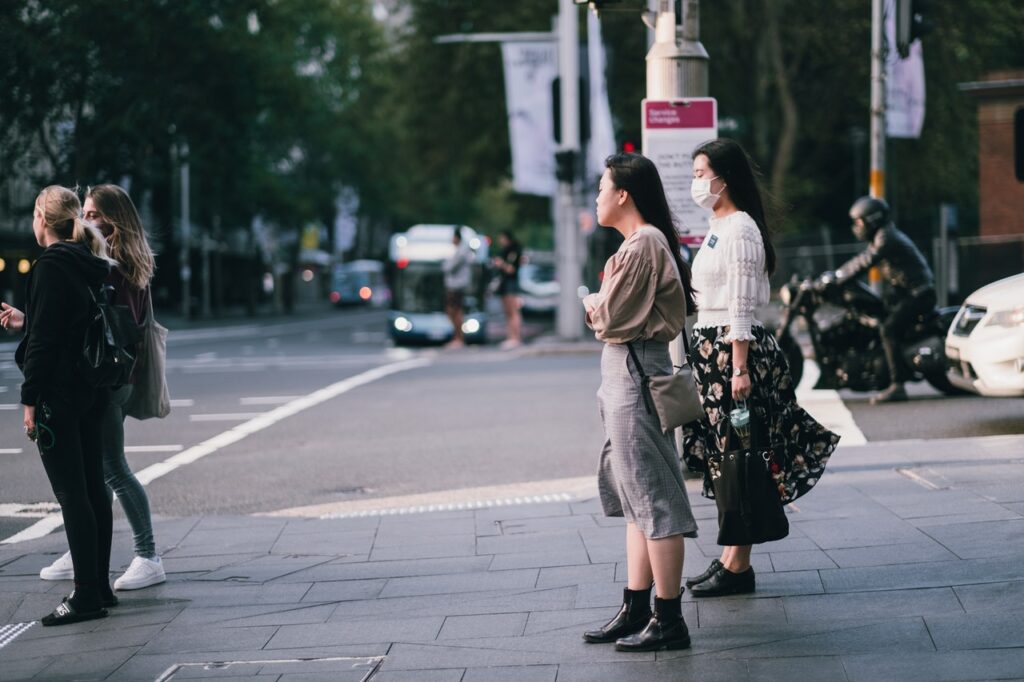 Photo courtesy of Kate Trifo via Pexels
Photo courtesy of Kate Trifo via Pexels
Since the Novel Coronavirus can be contracted from close person-to-person contact, the Center for Disease Control and Prevention (CDC) has suggested the practice of “social distancing” or also known as “physical distancing” to keep one another safe and healthy.
Social distancing is keeping the right amount of space (of at least one meter) between you and other people outside your home. This can be done when falling in line to enter the grocery or when paying at the cashier. Make sure to let people pass before entering a grocery aisle and be quick when getting the items you need.
6. Wipe the cart handles before and after you shop.
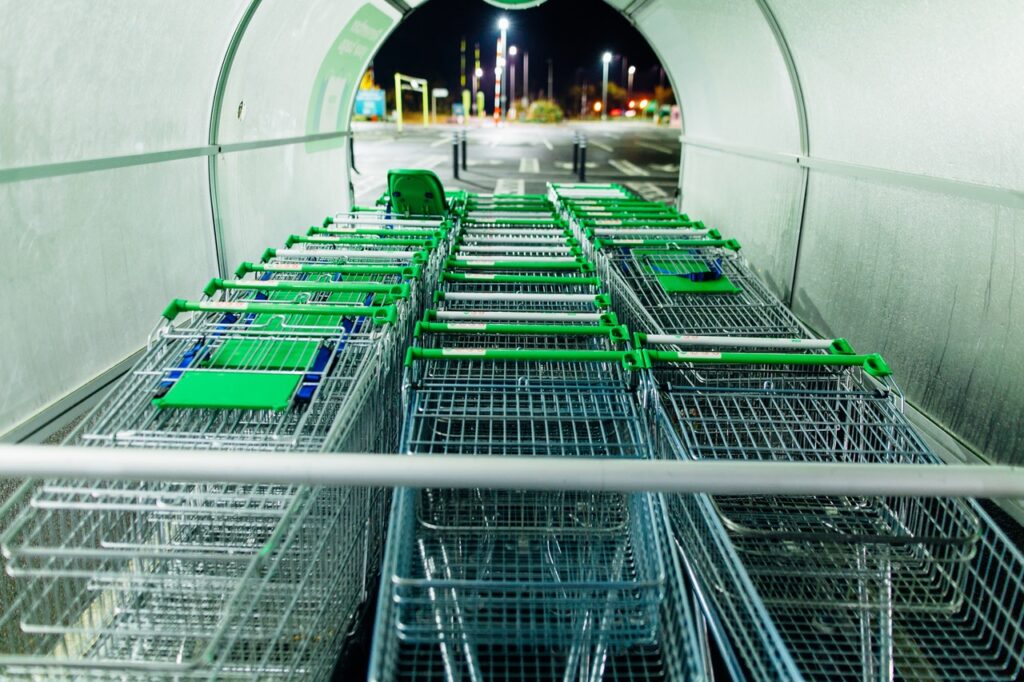 Photo courtesy of Kelly Lacy via Pexels
Photo courtesy of Kelly Lacy via Pexels
When using a shopping cart or a basket, wipe the cart or basket handles before use. You can also spray some rubbing alcohol to sanitize them.
Use alcohol or wet wipes that have 60 to 70% alcohol. A higher alcohol content means that the product is more likely to evaporate before it has time to disinfect your hands adequately. Water in the disinfectant helps break down and dissolve bacteria proteins.
7. Avoid touching your face.
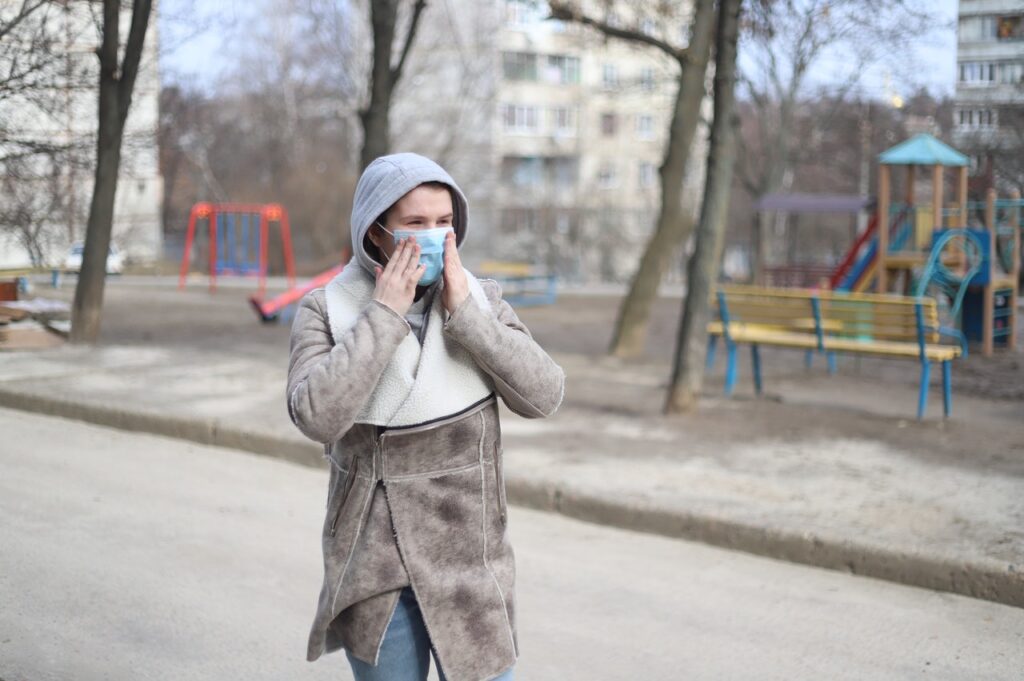 Photo courtesy of EVG via Pexels
Photo courtesy of EVG via Pexels
Is it your habit to touch your face or your hair? Perhaps it’s time to break the habit.
Don’t put your dirty hands near your face to avoid contamination. In the grocery, you’ll be touching carts, cans, and fresh food. Although there is no proven study that you can contract the virus through non-living things or food, it’s best to be cautious.
One precaution that some people are taking is wearing plastic gloves to cover their hands. According to the Washington Post, although gloves can help your hands be clean, the gloves can still become contaminated the same way your hands do. Gloves are not necessary, but washing or sanitizing your hands before and after entering the store is what’s important.
8. Stick to your grocery list
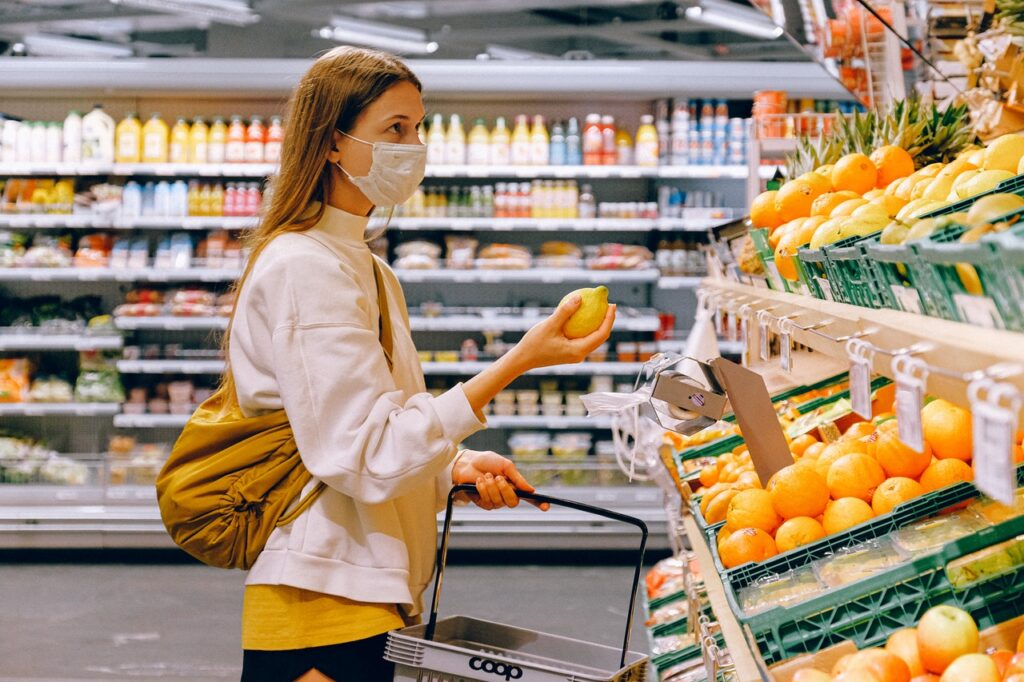 Photo courtesy of Anna Shvets via Pexels
Photo courtesy of Anna Shvets via Pexels
Remember the grocery list you made? Stick to it as much as you can.
Once you’re in the grocery store, frequently check the list of items you need. It’s all right to buy some wants or splurge on some food items, but make sure you’ve bought your necessities, first, before anything else.
What to do after grocery shopping
9. Wash your hands.
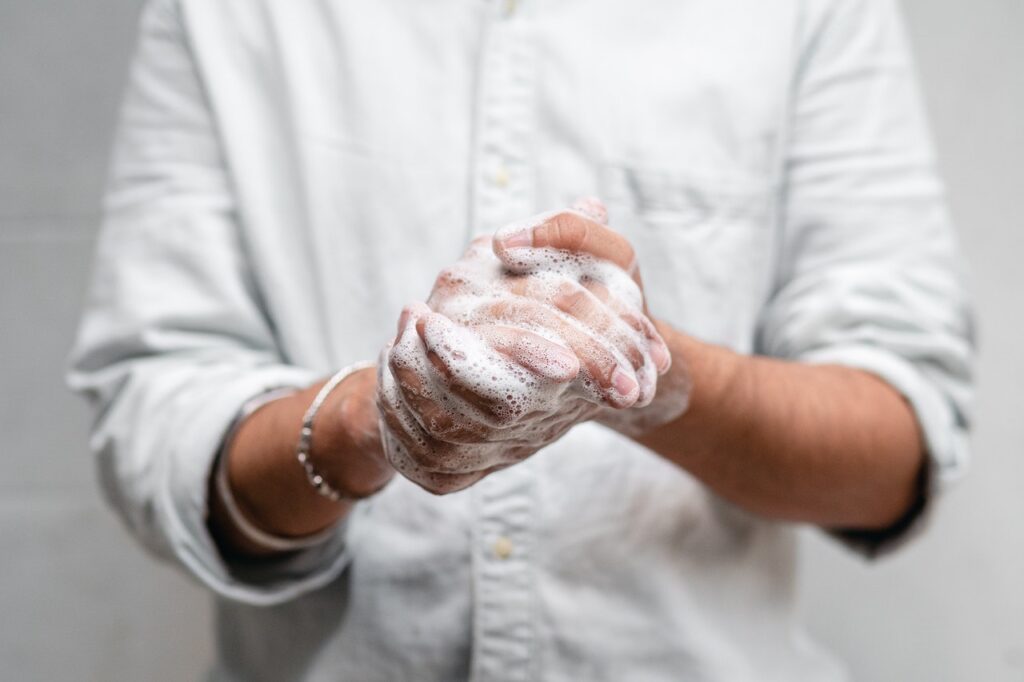 Photo courtesy of Ketut Subiyanto via Pexels
Photo courtesy of Ketut Subiyanto via Pexels
After you’ve done your shopping and are back at home, the first thing you should do is wash your hands with soap and water.
Health experts recommend you wash your hands for at least 20 seconds or twice the length of the Happy Birthday song. Ensure you rub all parts of your hands, including your thumb, back of the hands, and your fingernails. Health experts have provided proper handwashing videos you can watch to make sure you’re doing it correctly.
10. Properly dispose of your face mask.
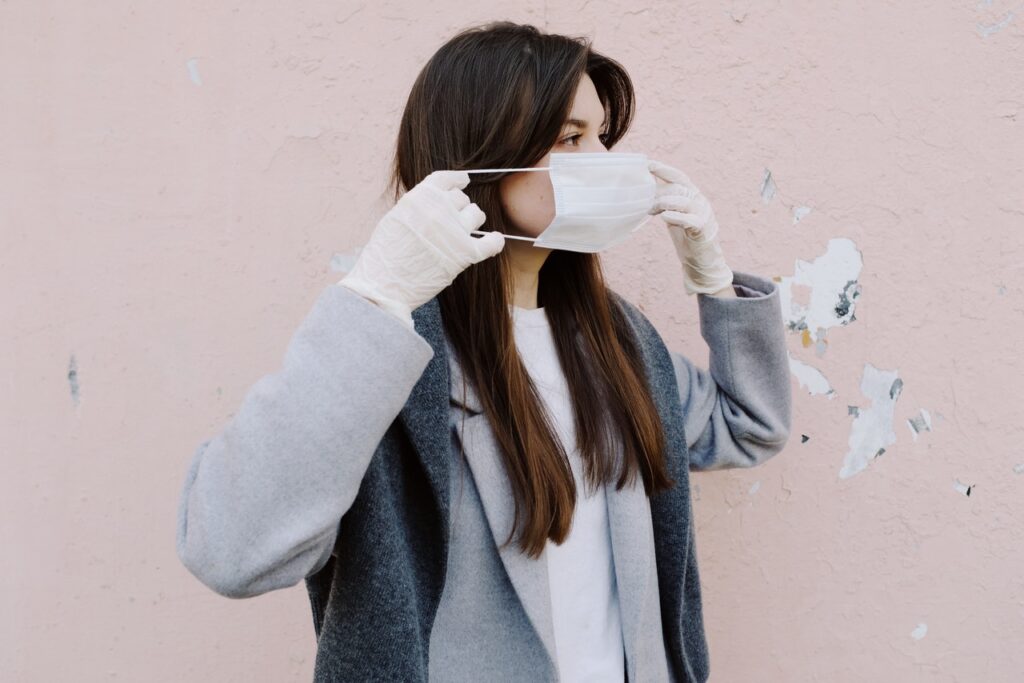 Photo courtesy of ready made via Pexels
Photo courtesy of ready made via Pexels
With clean hands, remove the mask you’re wearing. Don’t touch the mask itself. Be sure to touch only the straps on your ears to avoid contact with the virus that you may have stuck on the mask.
Once you have the mask off, wrap it using a tissue or paper, and throw it on the garbage bin. It is recommended that you have a separate bin for your face masks or gloves, labeling it as “toxic” garbage.
Research has proven that the Novel Coronavirus can stick and remain on face masks for at least seven days. Knowing how to properly dispose of your mask and cleaning your hands before and after can lessen the chances of contracting the virus.
11. Wash your reusable bags.
Place your reusable bags in the washing machine after you’ve taken all the food out of your grocery bags. Don’t mix it with your other clothes. Just place it separately and use soap and disinfectant to clean it. After washing, dry them outside in the sun or an electric dryer if you have one.
12. Wash the clothes you wore outside.
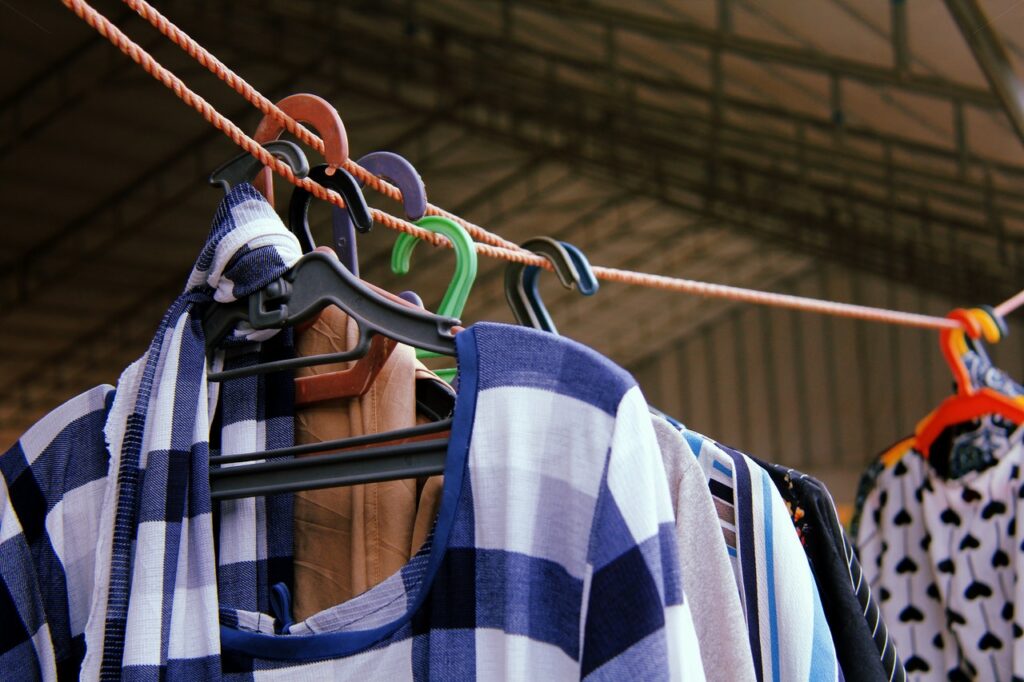 Photo courtesy of Muhammadtaha Ibrahim Ma’aji via Pexels
Photo courtesy of Muhammadtaha Ibrahim Ma’aji via Pexels
Just like the reusable bag you used in the grocery store, wash all the clothes you wore during your short trip.
Don’t mix those items of clothing with your regular clothes, as the virus can transfer to all your clothes. Throw them in the washer, pour soap, and disinfectant and wash until clean.
13. Take a shower and clean off.
If you think handwashing would do, think again! Take a shower to rid your body of all the possible germs you may have contracted while you were outside. Plus, with the heat outside, taking a shower won’t hurt to keep you clean and fresh.
14. Sanitize the items you bought.
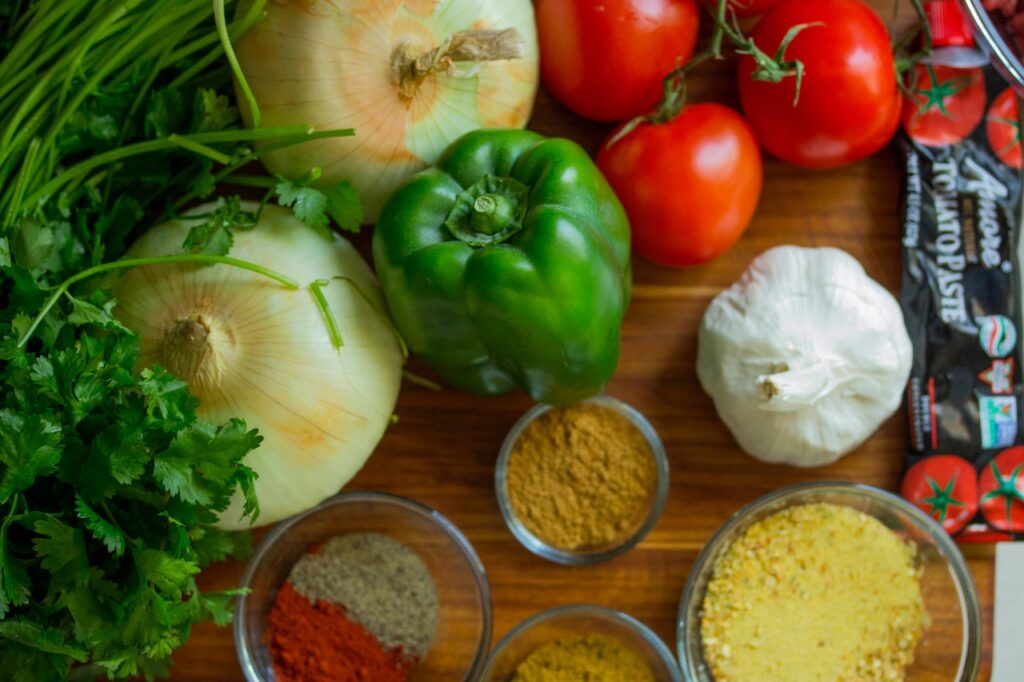 Photo courtesy of Angele J via Pexels
Photo courtesy of Angele J via Pexels
The most important thing you should do after grocery shopping is to disinfect the items you bought.
Although there is data to prove that the virus can survive on surfaces for one to three days, surface transmission from small grocery items shouldn’t be a concern. These small particles generally aren’t strong enough to make someone sick. Nonetheless, here’s a quick guide on how to sanitize the grocery items you bought:
- Using a commercial disinfectant or a natural one, spray it on your packaged goods and let them air dry for a while. You may also wipe the products using wet wipes or cloths with a disinfectant formula.
- As for fresh produce such as vegetables, fruits, and meat, it is highly recommended to just wash them with clean water before re-packaging them into different containers. Don’t fall into the trap of washing the items with soap or disinfectant, as this may put your health and safety at risk.
- After cleaning your food, wipe or sanitize your kitchen counters, tables, and any other surfaces where you may have placed the grocery items.
- Finally, wash your hands thoroughly with soap and water for a good 20 seconds.
There you have it, that’s everything you need to know about grocery shopping during the Novel Coronavirus outbreak. Hopefully, these grocery shopping tips will help keep your home safe and healthy during this time. Stay safe!
